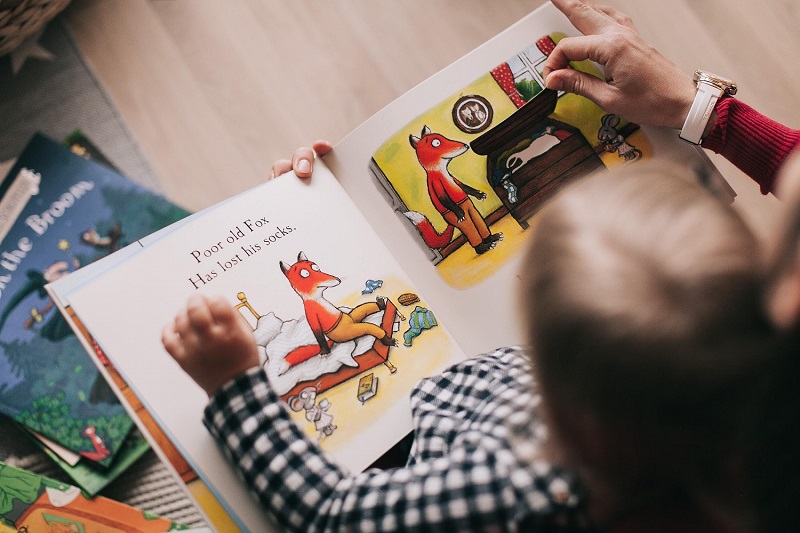It’s October! Which means cooler temps, pumpkin spice everything, as well as an opportunity to spread the word about a learning challenge that affects up to 1 in 5 people. October is Dyslexia Awareness Month, and as the proud mom of a child who gets to deal with it on a daily basis, this is a good opportunity to share some facts, dispel some myths and point you in the direction of some resources I have found to be informative and helpful as I sought to learn more about it. When my daughter was diagnosed, I was astounded at how little I knew about it, especially because I was 15 years in to my teaching career. But here we are, 5 years later and we have both learned so much, so now I get to share some of what I learned with you!
 Signs of Dyslexia:
Signs of Dyslexia:
Generally, a child with dyslexia will have difficulty with the following (from the International Dyslexia Association Website– link below):
- Writing letters and numbers backwards and reading backwards. This is one of the most pervasive myths about dyslexia. Writing numbers and letters backwards is something that everyone does at some point in their life, and it is not considered to be a tell-tale sign.
- Learning to speak
- Learning letters and their sounds
- Organizing written and spoken language
- Memorizing number facts
- Spelling
- Learning a foreign language
- Correctly doing math operations
There are subtleties, too. People with dyslexia often have difficulty rhyming words or pronouncing multisyllabic words. Another thing to look out for is substitution of words that may be in the same category or may have the same beginning or ending sound– this can happen in speaking or reading. An example given from the Yale Center for Dyslexia and Creativity cites using “volcano” instead of “tornado”. When this happens with my daughter, she can verbalize that she knows it’s the wrong word and that the correct one is stashed in her head somewhere, but out it comes anyway.
There are organizations that have more exhaustive and detailed lists and I have noted them below. I cannot stress enough how important it is that if parents, teachers, or other caregivers are seeing these behaviors, it’s not because the child is lazy or defiant or immature. It is truly because the brain of a person with dyslexia is wired differently. Many dyslexics are creative, outside of the box thinkers; have average to above average IQs; and often their gifts are overshadowed by the struggles they face. Not in all cases (hello, Steven Spielberg!), but the reality for people with dyslexia, especially if it is unrecognized, is that daily life can be quite challenging. That being said, there is a wealth of resources available online where you can learn more about how to support a child, student, or family member.
Resources:
Decoding Dyslexia NC: great place to find North Carolina-specific info, as well as advocates to accompany you to IEP meetings at your child’s school, tutors, and a wealth of other resources.
Understood.org: This link is to their page on characteristics of dyslexia, but this amazing site has info on the whole dys- family and their cousins: dyslexia, dysgraphia, dyscalculia, dyspraxia, sensory processing disorder, ADD, ADHD and more. Resources for parents and teachers.
International Dyslexia Association: Lots of great info, as well as a self-assessment for adults. I highly recommend checking it out if you had difficulty reading as a child or had troubles with foreign languages.
Yale Center for Dyslexia and Creativity: Resources for families and teachers, but also information that is specifically for kids.
Dyslexia cannot be outgrown, or cured, but people with dyslexia can be taught how to read and read well. A structured, multisensory approach to phonics and literacy (such as with Orton-Gillingham, Barton, and Wilson) has proven to be effective for all readers, regardless if they struggle or not. If you or someone you know is having difficulty learning how to read, take a look at some of the resources noted above– it could make a world of difference!

Article written by Megan Burke Mehta.
I am a mom of two humans and one dog with my spouse of 15 years in Charlotte. I have been in education since 2000, most of it in 3rd grade with a couple of diversions in 1st and 5th grade and am now teaching teachers in my current position. Both my kiddos face their own unique learning challenges and have taught me so much about neurodiversity (dyslexia, dysgraphia, dyscalculia, ADHD, giftedness, etc) in the classroom and I strongly believe in advocating for them and all kids who challenge the myth of average.
*Stock Image from Pexels.com


